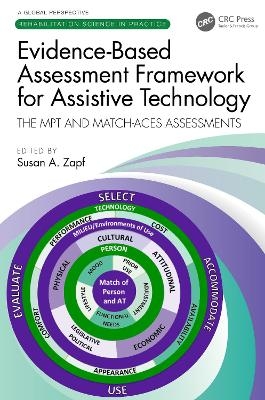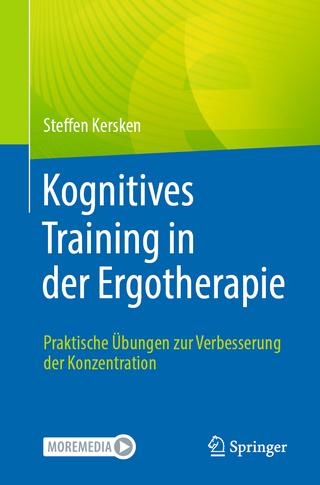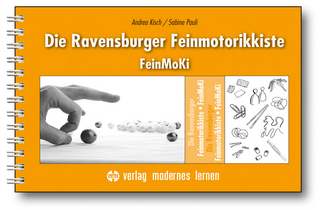
Evidence-Based Assessment Framework for Assistive Technology
CRC Press (Verlag)
978-1-032-49046-5 (ISBN)
The primary focus of this book is to educate the reader on the Matching Person and Technology (MPT) model and assessment process that will guide the reader on consumer-centered assistive technology assessment and outcome measures designed to be used for individuals of all ages and all types of disabilities. The first section of the book introduces the MPT and Matching Assistive Technology and CHild (MATCH) assessment process and discusses key documents that align with the assessments including the International Classification of Functioning, Disability, and Health and the Occupational Therapy Framework III.
The second section of the book focuses on the international emphasis of the MPT and MATCH assessments. At present, there are eight countries that are represented in this section. Each chapter includes information on the assessment translations (with access to copies if available or at least access on how to obtain copies). The authors discuss research on the use of the assessment within their country to support the assessment use. Lastly, a case scenario is discussed in each chapter to provide the reader with an example of how the assessment was used with an actual consumer. The last section of the book includes a focus on outcome studies in the areas of early childhood, education (primary secondary, and postsecondary), work, and functional independence. This section provides the reader insight into how to outline outcome measures within the MPT and MATCH process. There is an additional section on future works that includes a brief introduction to the Service Animal Adaptive Intervention Assessment.
This book is targeted to the Assistive Technology Providers (ATP) and policymakers (health care, education, and rehabilitation engineering), the university student pursuing a career in these areas, and the consumer of assistive technology.
Susan A. Zapf is an Occupational Therapist and Assistive Technology Professional with 27 years of experience working with the pediatric population in both private practice and school-based settings. She received her undergraduate degree in Recreation, Park, and Leisure Studies from the University of Minnesota and her Master of Occupational Therapy (MOT) and Master of Occupational Therapy/Rehabilitation Technology degrees (MA) from Texas Woman’s University. In April 2012, she graduated from Rocky Mountain University of Health Professions with a Doctor of Philosophy (Ph.D.) in Pediatric Science. Dr. Zapf’s research emphasis is on assistive technology assessment and outcome effectiveness. She is Board Certified in Pediatrics through AOTA, certified in the Sensory Integration Praxis Test, and certified through RESNA as an Assistive Technology Professional. She is the primary author of the MATCH-ACES Assistive Technology Assessment and The Service Animal Adaptive Intervention Assessment. Dr. Zapf has presented throughout the United States and internationally on assistive technology assessment and implementation. She has also presented on sensory strategies in occupational therapy, and service dogs and animal-assisted therapy. As an occupational therapist, she is passionate about helping children and their families develop skills to reach their full potential and she believes that occupational therapy and assistive technology can be powerful interventions to assist in this process.
0. Introduction. 1. The MPT and MATCH Framework. 2. The Matching Person and Technology Assessment Process and Measures. 3. The MATCH-ACES Assessment Process and Measures. 4. The MPT and MATCH-ACES Align with the WHO’s ICF and GATE Missions. 5. Matching Assistive Technology and Persons with Disabilities in the Republic of Ireland: Using the Matching Person & Technology Assessment Process. 6. The Matching Person & Technology Application in Spain. 7. The Italian Adaptation of the MATCH Assessment. 8. The Matching Person and Technology Model Application in Israel. 9. MPT Use in Paralympic Sports in Brazil. 10. Applying the Matching Person and Technology Model to Promote Academic Achievement and Career Success for Postsecondary Students with Traumatic Brain Injuries. 11. Assistive Technology Outcomes in Cognitive Rehab. 12. Assessing MPT Outcomes and the Person’s Realization of the Benefit from the Use of Technology. 13. Training the Service Providers.
| Erscheinungsdatum | 07.11.2024 |
|---|---|
| Reihe/Serie | Rehabilitation Science in Practice Series |
| Zusatzinfo | 23 Tables, black and white; 4 Line drawings, color; 2 Line drawings, black and white; 30 Halftones, black and white; 34 Illustrations, color; 2 Illustrations, black and white |
| Verlagsort | London |
| Sprache | englisch |
| Maße | 156 x 234 mm |
| Themenwelt | Medizin / Pharmazie ► Physiotherapie / Ergotherapie ► Ergotherapie |
| Medizin / Pharmazie ► Physiotherapie / Ergotherapie ► Rehabilitation | |
| Sozialwissenschaften ► Pädagogik ► Sozialpädagogik | |
| Sozialwissenschaften ► Soziologie | |
| Technik ► Medizintechnik | |
| ISBN-10 | 1-032-49046-2 / 1032490462 |
| ISBN-13 | 978-1-032-49046-5 / 9781032490465 |
| Zustand | Neuware |
| Informationen gemäß Produktsicherheitsverordnung (GPSR) | |
| Haben Sie eine Frage zum Produkt? |
aus dem Bereich


